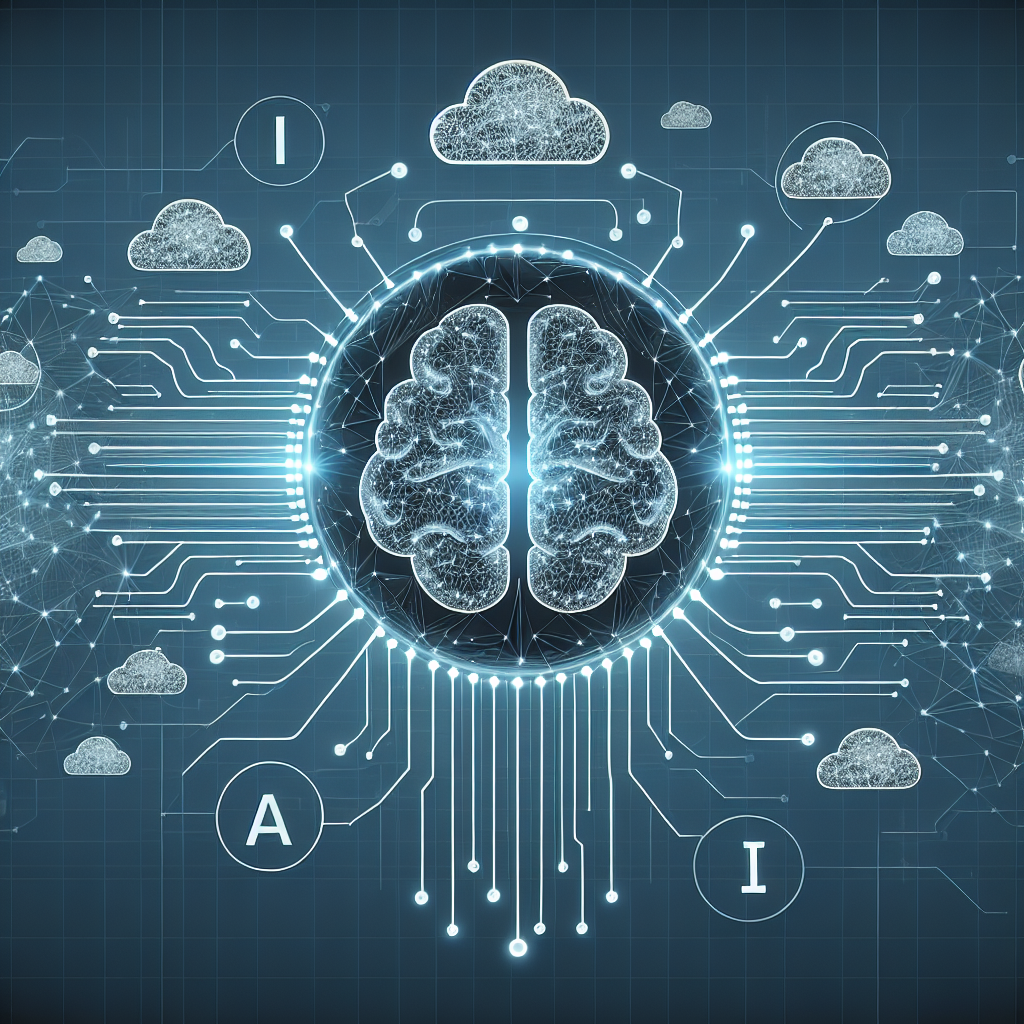In recent years, the combination of artificial intelligence (AI) and cloud computing has revolutionized the way businesses operate. AI technologies have been integrated into cloud computing platforms, leading to increased efficiency, flexibility, and scalability. This convergence of AI and cloud computing has paved the way for a new era of digital transformation, enabling organizations to leverage the power of AI to drive innovation, improve decision-making, and enhance overall performance.
AI is Transforming Cloud Computing
AI technologies such as machine learning, natural language processing, and computer vision are being integrated into cloud computing platforms to enhance their capabilities. These technologies enable cloud computing platforms to analyze large amounts of data, identify patterns, and make predictions, ultimately improving the efficiency and effectiveness of cloud-based services.
One of the key ways in which AI is transforming cloud computing is through automation. AI-powered automation tools are being used to streamline various cloud computing processes, such as provisioning, monitoring, and management. By automating these tasks, organizations can reduce the time and resources required to manage their cloud infrastructure, allowing them to focus on more strategic initiatives.
Another way in which AI is transforming cloud computing is through predictive analytics. AI algorithms can analyze historical data to predict future trends and make recommendations for optimizing cloud resources. This enables organizations to better plan and allocate their cloud resources, resulting in improved performance and cost savings.
AI is also being used to enhance security in cloud computing. AI-powered security tools can analyze network traffic, detect anomalies, and identify potential threats in real-time. By leveraging AI technologies, organizations can improve their ability to detect and respond to security incidents, ultimately enhancing the overall security of their cloud infrastructure.
Furthermore, AI is enabling cloud computing platforms to offer more personalized and tailored services to users. By analyzing user behavior and preferences, AI algorithms can deliver personalized recommendations, content, and experiences, enhancing the user experience and driving customer satisfaction.
Overall, the integration of AI into cloud computing is transforming the way organizations leverage cloud services, enabling them to achieve higher levels of efficiency, scalability, and innovation.
FAQs
Q: What are some examples of AI technologies being used in cloud computing?
A: Some examples of AI technologies being used in cloud computing include machine learning, natural language processing, computer vision, and predictive analytics.
Q: How is AI transforming automation in cloud computing?
A: AI-powered automation tools are being used to streamline various cloud computing processes, such as provisioning, monitoring, and management, enabling organizations to reduce the time and resources required to manage their cloud infrastructure.
Q: How is AI enhancing security in cloud computing?
A: AI-powered security tools can analyze network traffic, detect anomalies, and identify potential threats in real-time, enabling organizations to improve their ability to detect and respond to security incidents in their cloud infrastructure.
Q: What are the benefits of integrating AI into cloud computing?
A: Some benefits of integrating AI into cloud computing include increased efficiency, scalability, and innovation, as well as improved security, personalized services, and cost savings.
Q: How can organizations leverage AI in their cloud computing strategy?
A: Organizations can leverage AI in their cloud computing strategy by incorporating AI technologies into their cloud platforms, using AI-powered automation tools, predictive analytics, and security solutions to enhance their cloud services and drive digital transformation.

